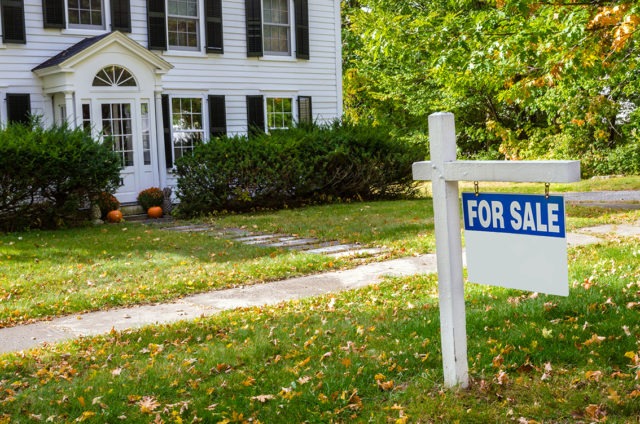By Brian J. Forgue, Esquire-
Sellers’ Responsibilities Under Pennsylvania’s Real Estate Seller Disclosure Law
If you have ever sold or purchased a home in Pennsylvania, then you likely recall completing or receiving a form called the Seller’s Property Disclosure Statement. As the name suggests, this is a document that the seller of a home completes and provides to the buyer to inform the buyer of any material defects with the property that are not readily observable. A material defect is any defect that would have a significant adverse impact on the value of the property or any defect that poses an unreasonable risk to people on the property.
The requirement for a seller to complete and provide the buyer a disclosure statement is grounded in a Pennsylvania law called the Real Estate Seller Disclosure Law (68 P.S. §§ 7301 – 7315) (“RESDL”). RESDL generally provides the seller’s disclosure duties to a buyer during a residential real estate transaction. Specifically, the seller must disclose any known material defects affecting the following areas related to the home:
- Seller’s expertise in contracting, engineering, architecture or other areas related to construction and conditions of the property and its improvements;
- When the property was last occupied by Seller;
- Roof;
- Basements and crawl spaces;
- Termites/wood destroying insects, dry rot and pests;
- Structural problems;
- Additions, remodeling and structural changes to the property;
- Water and sewage systems or service;
- Plumbing system;
- Heating and air conditioning;
- Electrical system;
- Other equipment and appliances included in the sale;
- Soils, drainage, and boundaries;
- Presence of hazardous substances;
- Condominiums and other homeowners associations; and
- Legal issues affecting title or that would interfere with the use and enjoyment of the property.
The list above is long and covers nearly all physical and systematic aspects of a home. If you are selling your home, you may be thinking how easy it would be to forget about or simply not know about a material defect with one of the many items appearing on that list. That’s possible. However, the Real Estate Seller Disclosure Law also provides the seller guidance and protection as they relate to the seller’s disclosure obligation to the buyer.
The Real Estate Seller Disclosure Law requires a seller to disclose only material defects a seller knows about. See 68 P.S. § 7309 (A)(1). For example, if a seller doesn’t know about a material defect in the electrical system of the house that is later discovered by the buyer three months after closing on the home, under RESDL, the seller is protected. A seller cannot disclose something he/she does not know.
Even if a seller knows about a material defect and does not disclose it, but reasonably believes that the defect was previously corrected, the seller is protected under RESDL. See 68 P.S. § 7309(A)(2). Additionally, the Real Estate Seller Disclosure Law does not require the seller to undertake any specific investigation or inquiry into the items on the list when completing the disclosure statement. The seller is only required to disclose material defects that the seller knows about at the time the disclosure statement is completed.
If you are buying a home, the seller’s disclosure statement should not be considered a substitution for a home inspection by a licensed home inspector prior to closing. Rather, the disclosure statement should be used in conjunction with a home inspection report to uncover any defects with the home that the buyer and seller are not aware of. Similarly, the disclosure statement is not a warranty provided to the buyer – it is merely a snapshot in time of material defects known to the seller when the disclosure statement is completed. A disclosure statement is a tool that is ideally used fairly and honestly to make residential real estate transactions as smooth as possible for all parties involved.
Our firm has represented both buyers and sellers of homes involving legal claims under the Real Estate Seller Disclosure Law. From a buyer’s perspective, RESDL cases are difficult because it is generally tough to prove that the seller knew and consciously chose to omit, for example, that the property was infested with termites, or that the roof over the garage leaks when it rains. Similarly, from a seller’s perspective, it is difficult to know how and what to disclose. For example, if a seller has fixed certain defects which the seller reasonably believes to be correct, does not include those defects on the disclosure statement, and then the defects reappear after the buyer purchases the home. Cases arising under RESDL, from both the buyer and seller perspective, are very fact-intensive.
Buying or selling a home is one of, if not the biggest investments a person will make, and if the transaction is not handled properly, it may cost you a lot, regardless of whether you are the buyer or seller. Bottom line – if you are a seller, be sure to disclose the defects of which you are aware on the property. If you are a buyer, confirm that the home you are purchasing is in the condition as represented to you by the seller. If not, consult an attorney at your earliest convenience.
If you are in the process of selling or purchasing a home or believe you have a claim under the Real Estate Seller Disclosure Law, contact Brian at (610) 840-0221 or [email protected].
 Brian J. Forgue is an attorney in MacElree Harvey, Ltd.’s Litigation practice group. Licensed to practice law in Pennsylvania, Brian represents clients in a broad range of litigation matters, with an emphasis on complex commercial litigation.
Brian J. Forgue is an attorney in MacElree Harvey, Ltd.’s Litigation practice group. Licensed to practice law in Pennsylvania, Brian represents clients in a broad range of litigation matters, with an emphasis on complex commercial litigation.






